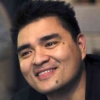Jose Antonio Vargas

Jose Antonio Vargas
Jose Antonio Vargasis a journalist, filmmaker, and immigration rights activist. Born in the Philippines and raised in the United States from the age of twelve, he was part of The Washington Post team that won the Pulitzer Prize for Breaking News Reporting in 2008 for coverage of the Virginia Tech shooting online and in print. Vargas also has worked for the San Francisco Chronicle, the Philadelphia Daily News, and The Huffington Post. He wrote, produced, and directed the autobiographical 2013...
NationalityFilipino
ProfessionJournalist
Date of Birth3 February 1981
After I arrived in Mountain View, California, in the San Francisco Bay Area, I entered sixth grade and quickly grew to love my new home, family and culture. I discovered a passion for language, though it was hard to learn the difference between formal English and American slang.
I'm sure the president doesn't enjoy being called deporter-in-chief.
In many ways, I think I've always overcompensated. I was always almost too careful, because I knew if anybody ever found any way to doubt my work, then they'd start picking my life apart, too.
I'm not a minority: I'm a majority of one. We all are. To call someone a minority, you give them baggage, of not being full, or not being seen as full. All of us need to be seen as full human beings.
Everyone has an opinion when it comes to immigration - strong, intense opinions.
I'm a gay, undocumented immigrant; I have to be optimistic.
I'm more than willing to go to places and talk to people who believe that I am an illegal alien who deserves to be jailed. I want to look them in the eye and say, 'What makes you think I'm any different from you?' I think for our generation, immigration rights is a civil rights issue.
I have no control whatsoever on how people perceive me from the Right or the Left. All I have control over is who I say I am.
I guess, as a reporter, I always thought that my biggest strength was that I could get anybody to talk to me. I wasn't the best writer, but I could get people to talk to me.
I want to be as creatively disruptive as possible. I want to be radically transparent in a way that isn't showboating.
As you watch 'Documented' on CNN, I ask you, my fellow Americans: What do you want to do with me? What do you want to do with us? How do you define American?
The Internet is changing the way we think of our relationship with government; it has the potential to bring to life what Abraham Lincoln said about the presidency being an instrument of the people.
Culture is about humanizing people. You look at the African-American civil rights movement, you look at the LGBT rights movement - the culture changed before the politics did.
As I graduated from public schools and started working in newsrooms, I told myself that I am only the 'illegal' that my own country has not bothered to get to know.